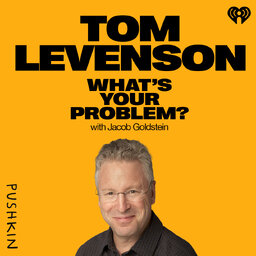How to Start 40 Companies (and Counting)
Robert Langer has co-founded dozens of companies, holds over a thousand patents, and is a pioneering figure in drug delivery and tissue engineering. Robert has solved a lot of problems, and is working on many more with his lab at MIT. But there is one big problem that has stuck with Robert his whole career: How do you get discoveries out of the lab and into the world?
In 1 playlist(s)
What's Your Problem?
Every week on What’s Your Problem, entrepreneurs and engineers talk about the future they’re trying …Social links
Follow podcast
Recent clips

The Killer We Refused to See
39:13

The Startup Run by AI Agents
54:16

Can AI Help Solve Alzheimer’s?
33:47
 What's Your Problem?
What's Your Problem?